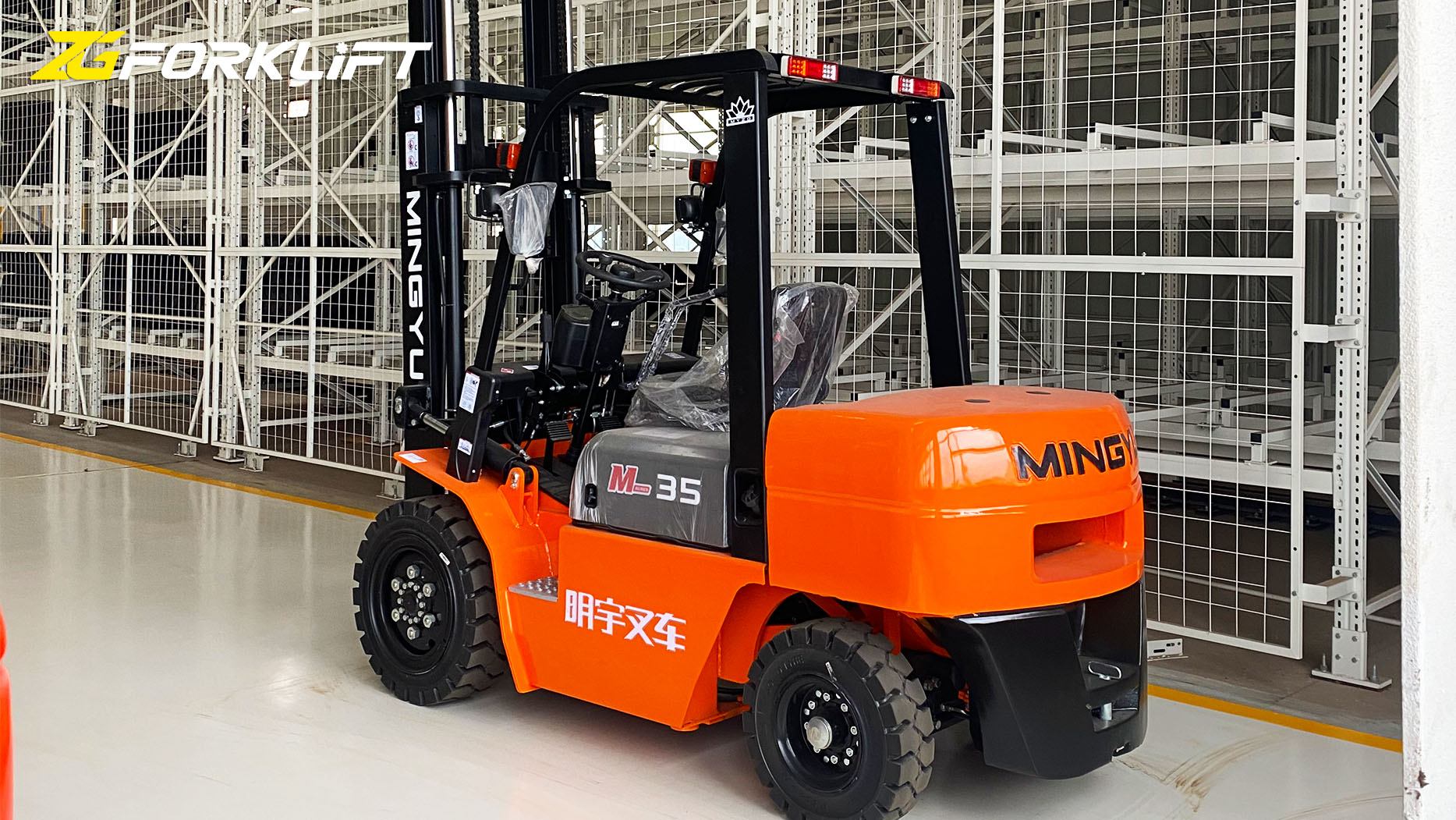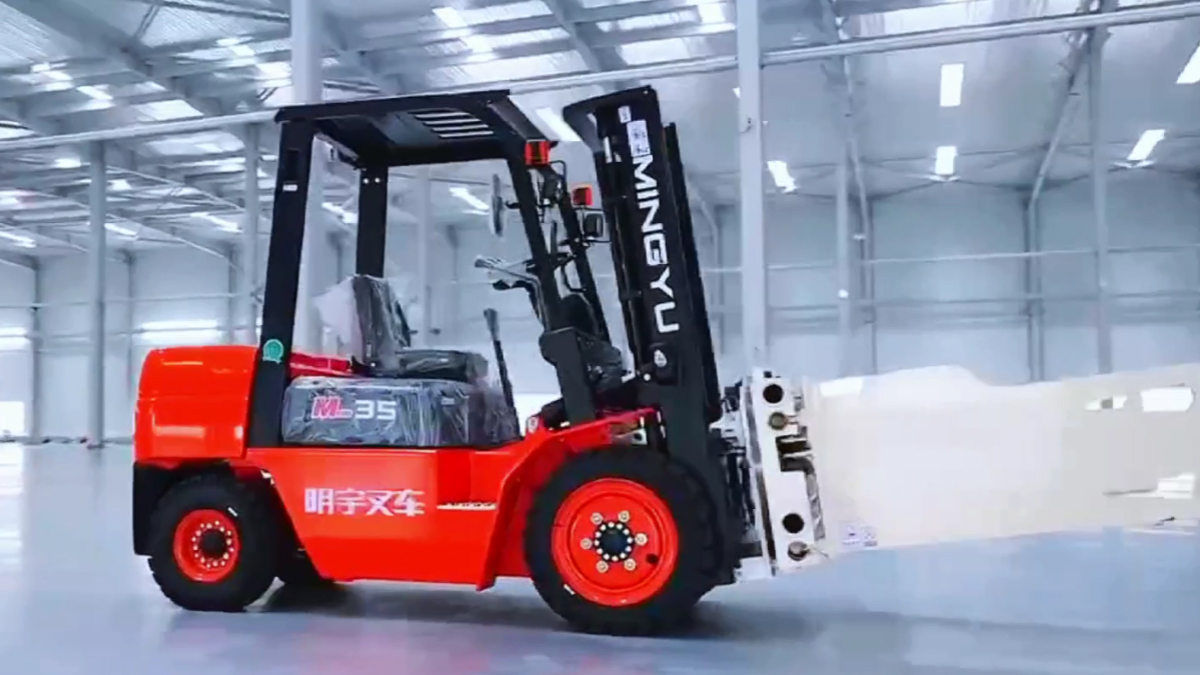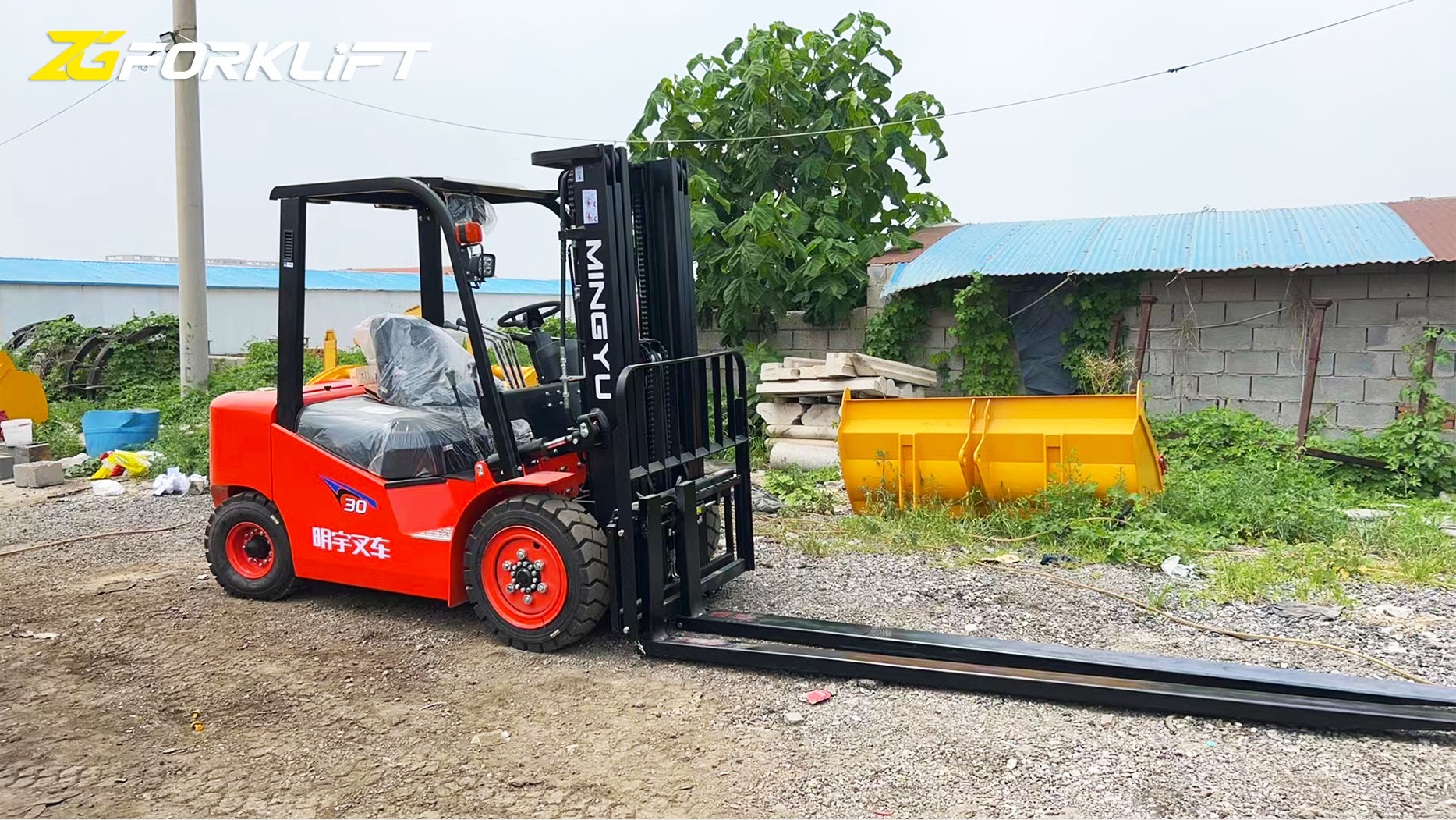Introduction
Forklifts are essential machines used in warehouses, manufacturing plants, construction sites, and shipping yards. Their primary purpose is to lift, transport, and stack materials efficiently. Forklifts come in various types, differentiated by their size, lifting capacity, and especially by the type of fuel they use. Among the most powerful and rugged are diesel forklifts, known for their heavy-duty performance and reliability.
This article delves into the advantages of diesel forklifts. We will examine their performance benefits, operational cost-effectiveness, environmental adaptability, and long-term value. Whether you’re managing a large industrial site or need to handle heavy materials outdoors, understanding the benefits of diesel forklifts will help in making informed purchasing or rental decisions.
Overview of Diesel Forklifts

Diesel forklifts are powered by internal combustion engines that run on diesel fuel. They are typically larger and more powerful than electric or LPG models and are designed for outdoor or heavy-duty applications. Equipped with rugged tires, strong frames, and high torque engines, diesel forklifts are capable of handling challenging tasks in rough environments.
They are widely used in construction sites, lumber yards, shipping ports, and large warehouses where lifting heavy loads is routine. These machines are not typically used indoors due to their emissions and noise, but for outdoor operations, they offer unmatched strength and reliability.
Power and Performance
One of the most notable advantages of diesel forklifts is their power output. Diesel engines produce high torque, making them ideal for lifting and transporting heavy loads. They perform well on uneven terrain and in outdoor settings where extra traction and force are required. Even under continuous use, diesel forklifts deliver consistent performance without the risk of battery drain or reduced power.
These forklifts are capable of operating for long hours without needing a break for refueling or recharging, a key benefit in high-demand industries. The combination of power and endurance makes them highly efficient for large-scale operations.
Durability and Longevity
Diesel forklifts are built to last. Their engines are designed to withstand long operating hours, harsh environments, and heavy loads. Compared to gasoline or electric forklifts, diesel models have fewer delicate electronic components, making them more robust and less prone to technical failures in rugged settings.
Their construction is generally heavier and more reinforced, with stronger frames and components. With proper maintenance, a diesel forklift can outlast other models and continue delivering dependable service over many years.

Fuel Efficiency and Cost-Effectiveness
Diesel fuel has a higher energy density than gasoline, which means that diesel forklifts can operate longer on a single tank of fuel. This translates to fewer interruptions during work shifts and reduced downtime. In industries where efficiency and uptime are critical, this is a major advantage.
Although diesel forklifts often have a higher upfront cost, they can be more cost-effective over time. Their fuel efficiency, combined with their long operational life and reduced need for frequent repairs, makes them a financially smart investment for many businesses.
Versatility in Harsh Environments
Diesel forklifts are highly versatile and perform well in environments where other forklift types may struggle. They are ideal for outdoor applications where weather conditions, rough terrain, and heavy loads are constant challenges. Unlike electric models, they do not suffer from reduced performance in extreme cold or heat.
These forklifts can work in muddy construction zones, dusty mining operations, and uneven gravel surfaces with ease. Their tough build and powerful engine allow them to operate effectively where lighter-duty forklifts might fail or break down.
Availability and Maintenance
Diesel fuel is readily available in most industrial and rural areas, which makes refueling easy and convenient. In addition, diesel engines are widely understood by mechanics, and spare parts are generally easy to find.
Compared to electric forklifts that may require specialized technicians and diagnostic tools, diesel forklifts are simpler to maintain using conventional tools and mechanical skills. Routine maintenance, such as oil changes, filter replacements, and fuel system checks, is relatively straightforward and cost-effective.

Load Capacity and Size Range
Diesel forklifts are available in a wide range of load capacities. From small models capable of lifting a few tons to massive machines that can handle over 50 tons, there’s a diesel forklift for nearly every heavy-duty application.
Their high load capacity makes them suitable for transporting steel coils, shipping containers, concrete blocks, and large construction materials. Businesses that regularly move oversized or extremely heavy materials often find diesel forklifts to be the only viable option.
Safety and Operational Control
Modern diesel forklifts come with safety features like enhanced braking systems, hydraulic controls, operator presence detection, and load stabilization mechanisms. Their stability and weight also provide a solid foundation during lifting, reducing the risk of tipping.
The visibility from the operator’s seat in diesel forklifts is often better than smaller electric models, especially in larger designs where elevated seating offers a better view of surroundings. Operator cabins can also be equipped with climate control, sound insulation, and ergonomic seating to ensure comfort during long shifts.
Limitations and Considerations
Despite their many advantages, diesel forklifts do have some limitations. They produce exhaust emissions that make them unsuitable for indoor environments without proper ventilation. Their engines are also louder than electric models, which may not be ideal in noise-sensitive areas.
In certain regions, diesel engine emissions are tightly regulated, and additional filtration or treatment systems may be required. These systems can increase maintenance complexity and cost. Additionally, some companies are looking to reduce their carbon footprint, which may prompt a shift toward electric or hybrid alternatives in the future.
Comparison with Other Forklift Types
Compared to electric forklifts, diesel models offer more power, better performance in tough environments, and longer operating hours. However, electric forklifts are better suited for indoor use, produce no emissions, and are quieter and cleaner.
When compared with gasoline or LPG forklifts, diesel models typically offer more torque, better fuel efficiency under load, and longer engine life. Gasoline forklifts may have a lower upfront cost and run more quietly, but they lack the heavy-duty capabilities of diesel forklifts.
Future Outlook and Innovations
The future of diesel forklifts includes innovations aimed at reducing environmental impact. Technologies such as diesel particulate filters (DPF), selective catalytic reduction (SCR), and hybrid engines are helping to meet stricter emissions standards.
Manufacturers are also exploring hybrid diesel-electric models that combine the power of diesel with the efficiency of electric motors. While electric and hydrogen-powered forklifts are growing in popularity, diesel models remain indispensable in many heavy industries.
Conclusion
Diesel forklifts offer unmatched power, durability, and versatility for heavy-duty and outdoor applications. Their high load capacity, fuel efficiency, and long lifespan make them a preferred choice for construction sites, shipping ports, and manufacturing plants.
Although they are not suited for indoor use and face increasing emissions scrutiny, diesel forklifts remain vital in many industrial settings. Understanding their advantages allows businesses to choose the right equipment for their operations and plan for future upgrades as technology evolves.
Post time:Apr.21.2025
